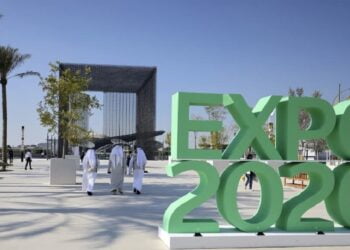On Sunday night, the streets of Jerusalem were filled with thousands of ultra-Orthodox Jewish men protesting against mandatory military conscription. This demonstration comes as part of a heated debate following Israel’s top court ruling that the military must start drafting religious students.
The ruling, which mandates the inclusion of ultra-Orthodox, or Haredi, men in compulsory military service, has ignited widespread dissent within the Haredi community. Traditionally exempt from military service, ultra-Orthodox men prioritize religious study over military duty, a practice deeply ingrained in their way of life.
The streets around a prominent yeshiva, or religious school, were a sea of black-clad demonstrators, unified in their opposition to the court’s decision. Rabbis used loudspeakers to address the crowd, delivering impassioned speeches in Yiddish—a poignant choice over Hebrew, underscoring their distinct religious identity and resistance to outside influences.
“We all declare to the court: we’ll die, we won’t enlist,” read one prominent poster, a stark reflection of the community’s unwavering stance on the issue. The sense of defiance was palpable among the throngs of demonstrators. Some carried banners; others pasted anti-draft slogans on street lamps and bus stops, transforming the cityscape into a canvas of protest.
The protest was replete with symbols of resistance. A bicycle, covered in dozens of stickers declaring, “To jail and not to the army,” stood as a testament to the community’s willingness to face imprisonment over conscription. One young Haredi, in a dramatic display, tossed a cascade of fliers into the air, each bearing a hotline number to report “any attempted kidnapping of a Haredi boy into the army.”
These acts of defiance underscore the profound fears within the ultra-Orthodox community. For many, military service is seen not just as a civic duty but as a profound threat to their religious identity and way of life.
A Divisive Ruling
The Israeli Supreme Court’s ruling has reignited a fervent debate that traverses the fabric of Israeli society. On one side, proponents of the ruling argue that equality in national service is a cornerstone of civic duty in Israel. They see the inclusion of Haredi men in the military as a necessary step towards greater societal unity and shared responsibility.
“We live in the same country and should bear the same obligations,” said Yael, a secular resident of Tel Aviv. “It’s not fair that some get exemptions while others put their lives at risk.”
On the other side, the Haredi community views the ruling as an existential threat to their religious and cultural identity. They argue that their commitment to Torah study and religious life is a form of service to the Jewish people that should be respected and preserved.
Rabbi Meir Cohen, one of the speakers at the protest, underscored the community’s steadfast opposition to conscription. “This ruling is not just an attack on our way of life; it is an attack on the foundations of our faith,” he told the crowd. “We will not bow to pressure. Our commitment to Torah and to God comes before all else.”
Miriam, a mother of four, echoed his sentiments. “My sons are dedicated to their studies. Forcing them into the military would destroy the fabric of our community,” she said, her voice tinged with fear and anger. “We will fight this with everything we have.”
The ruling also presents a significant challenge to Prime Minister Benjamin Netanyahu’s coalition government, which relies heavily on the support of ultra-Orthodox parties. The unity of his government faces a critical test as it navigates the fallout from this contentious issue.
The Haredi parties have made it clear that they will not support any government measures that enforce military conscription on their community. This standoff has the potential to destabilize the current political landscape, forcing Netanyahu to walk a tightrope between upholding the court’s ruling and maintaining his coalition.
The protest has also drawn international attention, highlighting the struggle within Israeli society to balance religious tradition and modern statehood. Analysts and observers are closely watching how the Israeli government will address this contentious issue without exacerbating divisions or undermining the rule of law.
As tensions simmer, calls for dialogue and compromise grow louder. Some voices within the secular community suggest alternative forms of national service that could accommodate the religious practices of the Haredi community while upholding the principle of shared responsibility.
In the halls of power and on the streets of Jerusalem, the debate over military conscription for ultra-Orthodox men remains a potent symbol of the broader struggle within Israeli society. It is a struggle to reconcile the demands of modern statehood with the deep-rooted traditions of a vital and devout community.
Sunday night’s protest in Jerusalem was more than a demonstration; it was a declaration of identity and resolve. Thousands of ultra-Orthodox men took to the streets to assert their right to maintain their way of life, free from external impositions that threaten their religious and cultural autonomy.
As Israel grapples with this complex issue, the need for a thoughtful and empathetic approach becomes ever more pressing. The resolution of this debate will not only shape the future of the ultra-Orthodox community but will also have profound implications for the cohesion and unity of Israeli society as a whole.








